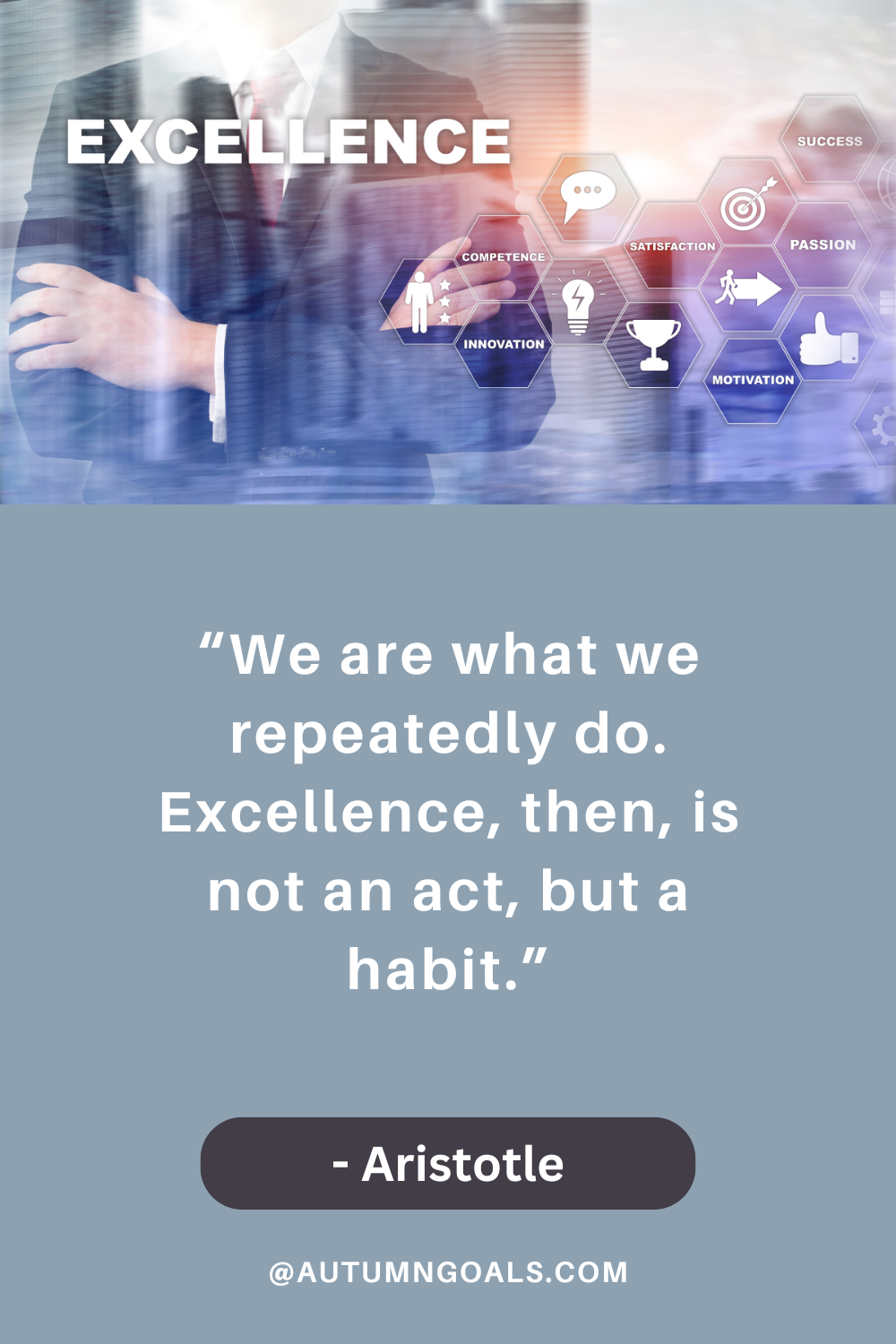How to Develop a Strong Work Ethic and Consistent Performance
September 22, 2024 | by autumngoals.com

Strong Work Ethic Image by StartupStockPhotos from Pixabay
The concept of work ethic is more relevant than ever in our ever-evolving world. A strong work ethic is the foundation upon which successful careers are built, and it is the driving force behind personal and professional development. But what exactly does it mean to have a strong work ethic? Essentially, work ethic is a set of values based on the virtues of hard work, discipline, and perseverance. It’s about having a commitment to doing your best, regardless of whether anyone is watching or not.

Developing a strong work ethic is not just about working harder; it’s about working smarter, showing up with a positive attitude, staying focused, and consistently delivering your best effort. This article explores the elements that make up a strong work ethic and provides practical tips to cultivate these attributes, ensuring consistent performance and growth.
Understanding the Importance of a Strong Work Ethic
To cultivate a strong work ethic, it’s necessary first to understand its significance. A solid work ethic serves as the backbone of personal and professional growth. It builds character, fosters responsibility, and is directly linked to achieving goals and success.
- Impact on Career Advancement: A strong work ethic is often a critical factor employers consider when promoting employees. Consistent performance and reliability make you a valuable asset to any organization. Your work ethic demonstrates your dedication to the company’s mission and your willingness to go above and beyond.
- Personal Development: A strong work ethic also plays a significant role in personal development. It encourages discipline, which is key to forming other positive habits. It fosters a sense of responsibility, improves time management, and can boost your self-esteem as you see the results of your hard work pay off.
- Building Trust and Reliability: A consistent work ethic builds trust among colleagues and supervisors. When people see you consistently put in the effort, they view you as reliable and dependable, which can lead to more responsibilities and opportunities.

Commitment to Excellence
Excellence should be a habit, not an act. To develop a strong work ethic, one must be committed to excellence in every task, no matter how small.
- Setting High Standards: Aim to do your best work in every situation. This doesn’t mean striving for perfection, but rather giving your best effort consistently. Setting high standards for yourself and sticking to them, regardless of external recognition, is a mark of a strong work ethic.
- Continuous Improvement: Commit to being a lifelong learner. The world is constantly changing, and there’s always something new to learn. Seeking out opportunities for personal and professional growth shows a commitment to excellence. This could involve reading industry-related books, attending workshops, or taking online courses.
- Paying Attention to Detail: Excellence often lies in the details. Taking the time to ensure your work is thorough and error-free is a clear demonstration of a strong work ethic. Whether it’s double-checking an email before sending it or ensuring the quality of a product, attention to detail matters.

Developing Discipline and Self-Control
Discipline is at the heart of a strong work ethic. It involves making consistent efforts and maintaining self-control, even when motivation wanes.
- Creating Routines: Routines provide structure and help develop discipline. Establishing daily habits, such as a morning routine or a dedicated time for focused work, sets the tone for the rest of the day. Consistent routines can train your brain to expect and perform certain tasks at specific times, making it easier to stay disciplined.
- Setting Boundaries: Discipline often involves saying no to distractions. Whether it’s limiting time on social media, avoiding unnecessary meetings, or setting clear work-life boundaries, having the self-control to manage your environment is necessary for developing a strong work ethic.
- Practicing Self-Control: Learning to manage your emotions and impulses is a key part of discipline. This could mean resisting the urge to procrastinate, staying calm under pressure, or maintaining a professional attitude even when faced with criticism or frustration.

Staying Focused and Avoiding Procrastination
Focus is a vital component of a strong work ethic. In a world so full of distractions, the ability to concentrate on tasks is invaluable.
- Prioritizing Tasks: Focus requires understanding what is most important. Use tools like the Eisenhower Matrix to prioritize tasks based on urgency and importance. Start with the most critical tasks to ensure that your energy is spent on activities that will have the greatest impact.
- Breaking Down Goals: Large projects can be overwhelming and lead to procrastination. Break down big goals into smaller, manageable tasks. This not only makes the work seem less daunting but also provides a sense of accomplishment as you complete each step.
- Limiting Distractions: Create a work environment that minimizes distractions. This might mean working in a quiet space, using noise-canceling headphones, or turning off notifications on your phone or computer. The fewer distractions you have, the easier it is to maintain focus.

Cultivating a Positive Attitude
A positive attitude is contagious and can significantly influence the work environment and your personal performance.
- Embracing Challenges: Instead of viewing challenges as obstacles, see them as opportunities to learn and grow. A positive mindset will help you navigate difficulties more effectively and maintain your work ethic even when things aren’t going as planned.
- Practicing Gratitude: Regularly acknowledging what you’re thankful for can improve your overall attitude. Keeping a gratitude journal or taking a moment each day to reflect on the positives can shift your mindset and make it easier to stay motivated and engaged.
- Surrounding Yourself with Positivity: Your environment significantly impacts your attitude. Surround yourself with positive influences—whether it’s colleagues, friends, or motivational content. Engaging with positive energy can uplift your spirit and reinforce your commitment to maintaining a strong work ethic.

Taking Responsibility and Being Accountable
Owning up to your responsibilities and being accountable for your actions are key traits of someone with a strong work ethic.
- Taking Initiative: Don’t wait for someone to tell you what to do. Take the initiative to identify problems and come up with solutions. Being proactive shows that you are engaged and committed to your work.
- Admitting Mistakes: Everyone makes mistakes, but how you handle them is what sets you apart. Acknowledge your errors, take responsibility, and work towards fixing them. This builds trust and shows that you are accountable for your actions.
- Setting Realistic Goals: Part of being responsible is setting achievable goals. By setting realistic targets and working towards them, you demonstrate a commitment to your responsibilities. Use SMART (Specific, Measurable, Achievable, Relevant, Time-bound) goals to ensure your objectives are clear and attainable.

Developing Time Management Skills
Time management is crucial for maintaining consistent performance and developing a strong work ethic.
- Prioritizing Tasks: Effective time management starts with knowing what tasks to prioritize. Identify your top priorities and focus on completing them first. This ensures that your most important work gets done and reduces the stress of looming deadlines.
- Using Time Management Tools: Utilize tools and apps designed to help you manage your time. Calendars, to-do lists, and project management software like Trello or Asana can help keep your tasks organized and track your progress.
- Avoiding Multitasking: Studies show that multitasking can reduce productivity and lead to mistakes. Instead, focus on one task at a time to ensure that your work is done efficiently and accurately.

Build a Strong Work Ethic for Self-Improvement
Developing a strong work ethic is not a one-time effort but a continuous process of self-improvement and commitment to excellence. It involves cultivating discipline, staying focused, maintaining a positive attitude, taking responsibility, and managing time effectively.
The benefits of a strong work ethic extend beyond career advancement; they foster personal growth, build character, and set the foundation for a fulfilling life. By consistently applying these principles and tips, you can develop a work ethic that not only enhances your professional life but also enriches your personal journey.
RELATED POSTS
View all



